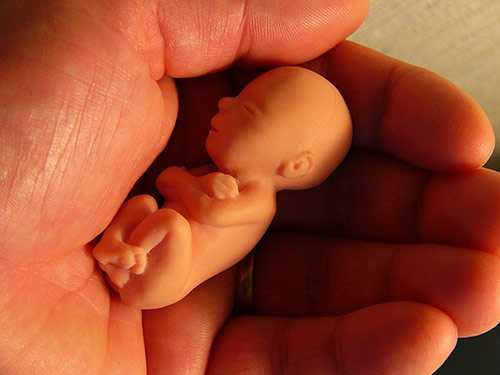Most women are usually happy after discovering that they are pregnant, not just because they are going to have a baby, but also for the temporarily relief from monthly bleeding. However, this joy can turn into worry for some quickly when bleeding or spotting is noticed during pregnancy. This write-up will give information about what you should do if you notice bleeding during pregnancy.
First of all, you should know that bleeding is common during pregnancy and generally not a cause for concern, especially in the first trimester. However, it is important for you to know the possible causes and get checked by your doctor to ensure that your baby remains healthy because there are times when bleeding could be indicating something serious.
There are many reasons why you might notice vaginal bleeding when pregnant, some will be serious but many of them are not. The following will highlight some of the possible causes in the different trimesters:
First Trimester
- Implantation bleeding, can occur around ten to fourteen days following conception
- Miscarriage, a sudden loss of pregnancy prior to the twentieth week
- Ectopic pregnancy
- Cervical problems, including a cervix infection, growths or an inflamed cervix
- Molar pregnancy, something that happens rarely when an abnormal mass forms within the uterus after fertilization instead of a baby
Second or Third Trimester
- Placental abruption
- Intrauterine fetal death or miscarriage prior to the twentieth week
- Cervical cancer
- Problems with cervix, including growths, inflammation or infection
- Premature cervix opening that could result in preterm birth
- Uterine rupture, which is a rare and life-threatening incident where the uterus tears open on the scar line from a previous C-section
- Preterm labor that leads to light bleeding and is accompanied by dull back pain, pelvic pressure or contractions
Normal vaginal bleeding close to the ending of pregnancy
If you notice light bleeding close to the end of your pregnancy and it’s mixed with mucus, this could indicate the start of labor.
Like some women, you might experience vaginal bleeding after having sex because more blood is flowing to the pelvis. You could also get a tiny scrape on your genitals that might cause bleeding during pregnancy. Some other possible causes are a vaginal infection or a cervical irritation.
What Should You Do If You Notice Bleeding During Pregnancy
Many different factors could cause vaginal bleeding or spotting during pregnancy, so it is not possible to give you comprehensive recommendations. Perhaps the only true universal advice would be that you should contact your practitioner immediately if you are worried. It is highly likely that your practitioner is going to check to see if the cervix is open if you are experiencing heavy bleeding. You will have a greater chance of losing your baby if this is the case.
You can be sure that your doctor will do an ultrasound in order to identify the underlying cause. A full evaluation often involves abdominal and vaginal ultrasounds. You have high chances of remaining pregnant if an ultrasound is done and a heartbeat is detected.
As soon as you notice the bleeding, you should wear a pad to monitor the amount as well as make a note of the type of blood, whether pink, red or brown color or bleeding with or without clots.
It is also a good idea to bring the pad that was used on your vagina to the practitioner for testing. You should avoid sex or the use of tampons when you are bleeding.
It is highly recommended that you should go straight to the emergency room if you notice any of these symptoms:
- Vaginal discharge that contains tissue;
- Intense cramps or severe pain in the lower abdomen;
- Fainting or dizziness;
- Severe bleeding, with or without pain;
- Chills and/or fever that is over 100.4 degrees Fahrenheit.
What You Should Know
The most important thing to know is exactly when you should call your doctor. To get some clear recommendations you need to ask when to come in or call from the first visit. There are times when it is fine to watch bleeding in a small amount for a day.
You should rest assure that nothing is wrong with you if your baby is lost through miscarriage. Most women have a miscarriage at least one time during their reproductive life, with many even having one before even knowing that they were pregnant.
At the end of the day, you need to remember that light spotting or bleeding is common and not something that you should be worried about. On the other hand, you need to visit your doctor or go straight to the hospital if you are bleeding heavily and have to wear a pad, especially if it’s accompanied by cramping or pain. Keep in mind though that this is not necessarily an indication that you are having a miscarriage. Some women experience vaginal bleeding throughout their pregnancies, even heavily, and still go on to have healthy babies.



